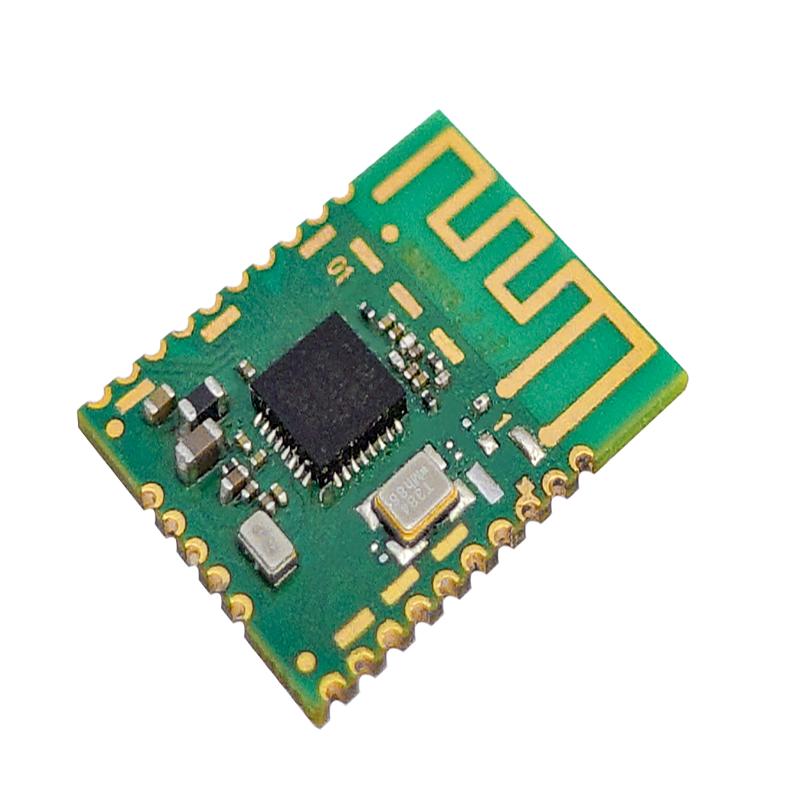Bluetooth modules bring ubiquitous connectivity to the IoT. Device sensors can quickly collect more data and send the data to the cloud server. Users can obtain accurate device management data in real time. In the field of IoT, smart home is a very typical application scenario.

In the existing electronic door lock, add a low-power bluetooth module. The user can unlock and control the door lock through the APP of the smartphone. Users do not need to use cumbersome key cards and keys, making it more intelligent and convenient.

The user can remotely register the tenant through the mobile APP to generate a password to unlock the door. It is sent to the tenant's mobile phone by means of text messages. Guests can open the cloud lock with a password, enter the room for inspection or check-in. After the tenancy expires, the password expires, and the tenant completes the cancellation and payment. The Bluetooth module is suitable for smart doors in homes, hotels, and homestays.
Add a low-energy Bluetooth module to the LED light. Users can control the on/off, brightness, color, and mode of the LED lights through the smartphone APP. Users can realize one-to-one, one-to-many, and many-to-many control modes.
Users only need to install an APP on their mobile phones to realize intelligent control of lights. Just keep the LED lights powered on, and then cooperate with the APP, you can control the LED lights with your smartphone.
So as to realize the remote control of the brightness, color, switch and so on of the LED light. The Bluetooth module is suitable for smart lighting in homes, hotels, office environments, and cafes.
Built-in low-power Bluetooth module in the thermo-hygrometer. The Bluetooth module collects temperature and humidity data in real time, and uploads the data through the Bluetooth gateway. Users can view the data directly on the mobile APP. Users can also issue control instructions to adjust the temperature and humidity to the home air purifier through the mobile phone.
Users can realize one-to-one, one-to-many and other data acquisition modes. Just install an APP on your mobile phone to collect temperature and humidity data in each room, as well as air conditioning. The Bluetooth module is suitable for environmental detection applications in homes, shopping malls, museums, offices, hospitals, confinement centers, and nursing homes.
A circuit is connected to the traditional curtain, and the household voltage is converted into a DC low voltage to supply power to the Bluetooth control module. The working state of the motor in the circuit is controlled by the BLE module. Users can open and close the curtains through the smartphone APP.
The Bluetooth module is suitable for smart curtain applications in homes, offices, hospital confinement centers, and nursing homes. Smart curtain based on Bluetooth module, by combining the motor with the track. In this way, the installation is simpler, the operation is simpler, the appearance is more beautiful, and the service life is longer.
SKYLAB cooperated with chip manufacturer Nordic to develop and launch a variety of Bluetooth modules based on the nRF52 series solutions. They are BEL4.2/BEL5.0 Bluetooth module SKB369, BLE5.0 Bluetooth module SKB501, and BLE5.0 Bluetooth module SKB378. The above low-power Bluetooth modules can be used for smart door locks, smart lighting, environmental detection, smart curtains and other applications.
As for which one you choose is more suitable, you need to understand the key points of Bluetooth module selection. The selection of Bluetooth modules is mainly based on size, power consumption, antenna mode, and price.For more product information, visit SKYLAB's official website and consult customer service.
Copyrights© Shenzhen Skylab Co.,LTD All Rights Reserved.

